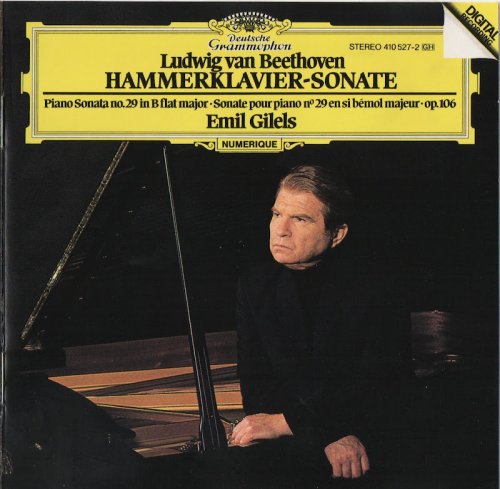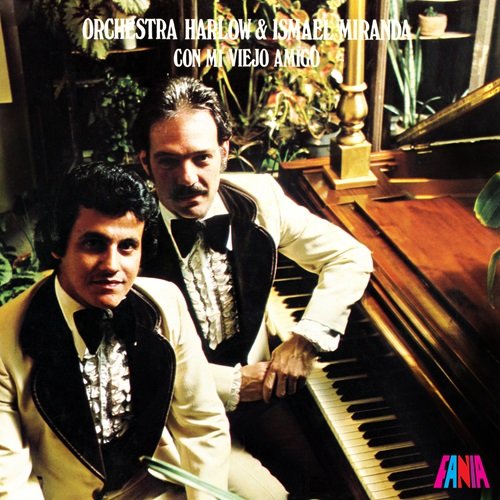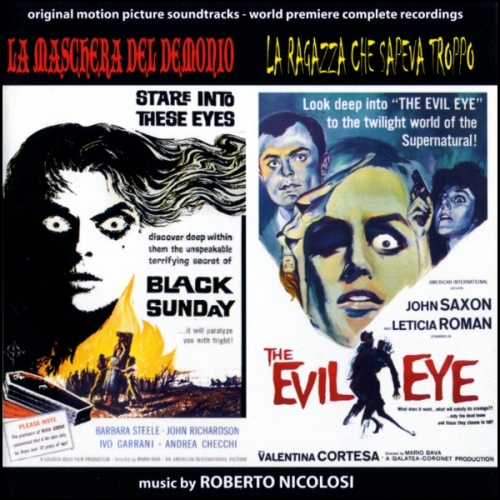Emil Gilels - Beethoven: Piano Sonata No. 29, Op. 106 (1983)

Artist: Emil Gilels
Title: Beethoven: Piano Sonata No. 29, Op. 106
Year Of Release: 1983
Label: Deutsche Grammophon
Genre: Classical
Quality: FLAC (image+.cue,log,scans)
Total Time: 48:37
Total Size: 162 Mb
WebSite: Album Preview
Tracklist: Title: Beethoven: Piano Sonata No. 29, Op. 106
Year Of Release: 1983
Label: Deutsche Grammophon
Genre: Classical
Quality: FLAC (image+.cue,log,scans)
Total Time: 48:37
Total Size: 162 Mb
WebSite: Album Preview
Klaviersonate Nr.29 B-Dur Op.106 "Grosse Sonate Für Das Hammerklavier"
1. 1. Allegro 12:15
2. 2. Scherzo. Assai Vivace 2:50
3. 3. Aagio Sostenuto. Appassionato E Con Molto Sentimento 19:50
4. 4. Largo - Allegro Risoluto 13:34
Performers:
Emil Gilels - piano
After the massive rhythms and monumental sonorities, the first thing that strikes the listener about the performance is that Gilels no longer had the technique necessary to play Beethoven's mighty Hammerklavier when this recording was made. There is no doubt that he did once: Gilels was one of the two great Russian pianists of the second half of the twentieth century and he could once play stupendously difficult repertoire with tremendous facility. And the Hammerklavier is absolutely the most difficult piano sonata ever composed and its gargantuan demands have defeated nearly every pianist who has ever recorded it.
That said, Gilels is still not up to the demands of score. He still has the concentration -- the enormous Adagio sostenuto is sung in a single breath and the colossal final fugal Allegro risoluto is rigorous in its relentless counterpoint -- but he just does not have the technique to play the notes. Most of them are there, but most is nowhere near enough for a work in which imponderable matter is represented in indomitable manner. In other words, what was meant by "subversive beauty" was that Gilels' aging technique has seemingly subverted the timeless beauty of Beethoven's Hammerklavier.
That said, Gilels is still not up to the demands of score. He still has the concentration -- the enormous Adagio sostenuto is sung in a single breath and the colossal final fugal Allegro risoluto is rigorous in its relentless counterpoint -- but he just does not have the technique to play the notes. Most of them are there, but most is nowhere near enough for a work in which imponderable matter is represented in indomitable manner. In other words, what was meant by "subversive beauty" was that Gilels' aging technique has seemingly subverted the timeless beauty of Beethoven's Hammerklavier.



![Laurine Frost - Maiden (2025) [Hi-Res] Laurine Frost - Maiden (2025) [Hi-Res]](https://img.israbox.com/img/2025-12/01/3e2dvxmqjebf2huqbw8eabcua.jpg)




![Lennart Ginman, Thomas Blachman, Carsten Dahl - Play Ballads (2025) [Hi-Res] Lennart Ginman, Thomas Blachman, Carsten Dahl - Play Ballads (2025) [Hi-Res]](https://www.dibpic.com/uploads/posts/2025-12/1764687057_folder.jpg)